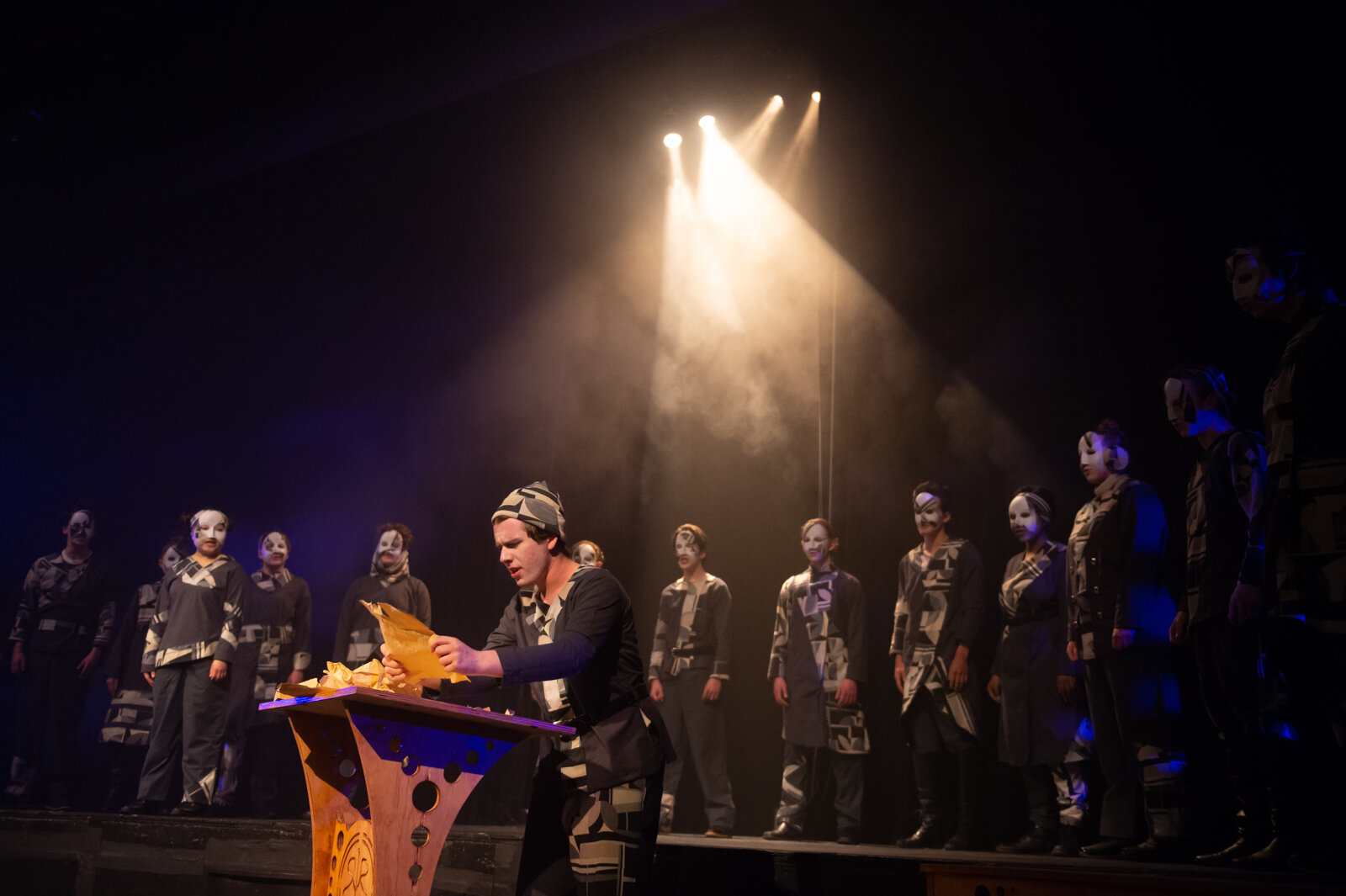Selected Journalism
“AreUR?” at Southern Illinois University, Edwardsville (SIUE)
“AreUR? at SIUE Was a Triumph of Adaptation and Collaboration”
Review for KDHX (May 6, 2019)
Excerpt:
From April 24-28 2019, students and faculty at Southern Illinois University, Edwardsville, produced a fascinating, wildly collaborative, play called “AreUR?,” an adaptation of the Czech classic “R.U.R.” The original, 1921 script by Karel Capek gave us the word “robot,” and ushered in some of our first fears about artificial life taking over the world. Capek, however, lived long before AI devices resided in our phones, speakers, TVs, and cars. The students and faculty at SIUE updated Capek's script, both in content and form, to produce a clever adaptation, “AreUR?.”
Read full review.
"Nie Mów Nikomu” [Do Not Tell Anyone], dir. by Adam Ziajski, Scena Robocza, Poznań, Photo by Maciej Zakrzewski
“Nie Mów Nikomu (Do Not Tell Anyone) – Performing Sign Language.”
Review for www.TheTheatreTimes.com
(the largest global, online theatre portal).
Co-written with Dagmara Krzyzaniak. (28 December 2017)
Excerpt:
The motto of Scena Robocza (Working Scene) is, “Freedom, Equality, Theatre,” and these elements are on full display in the company’s piece Nie Mów Nikomu (Do Not Tell Anyone). A multimedia performance piece, Nie Mów Nikomu is built around the true-life stories of five deaf people in Poland. The performance is simultaneously a beautiful piece of live art and an educational piece of activism about disability. Nie Mów Nikomu provides a space on the Polish stage for the subject of deaf life, but it does not do so with pity or exoticization. Instead, it portrays its subjects as equal to anyone else in the room—not “disabled” as much as “differently abled.”
Read full review.
Chór Sierot, directed by Jerzy Zón. Photo: Adam Golec.
“Chorus of Orphans: A Theatre Séance by Poland’s Teatr KTO, Kraków”
Review for European Stages (Fall 2016)
Excerpt:
Founder and longtime artistic director of Kraków’s Teatr KTO, Jerzy Zoń, traces his choice of a life in theatre to a moment when—still a student—he sat in the audience, weeping, during the 1975 premiere performance of Tadeusz Kantor’s Dead Class: A Séance. It is fitting, then, that Zoń’s creation, Chór Sierot (Chorus of Orphans) was performed in May 2016 at the new Kantor Museum in Kraków where it will play in repertory for several years. Chór Sierot is itself, in some senses, a response to Dead Class, concerned less with the war dead and, instead, concentrating on the predicament of child war survivors. In particular, Chór Sierot focuses on the institutionalization of these children, investigating the state care of humans on at least two levels. First, the play is an abstract, wordless performance of the ordeals suffered by children whose parents died during Poland’s traumatic twentieth century; and, more abstractly, it uses the state-run situation of the orphanage as metaphor for the trial of living in communist-run Poland.
Read full review.


!["Nie Mów Nikomu” [Do Not Tell Anyone], dir. by Adam Ziajski, Scena Robocza, Poznań, Photo by Maciej Zakrzewski](https://images.squarespace-cdn.com/content/v1/5df2844feb6d762f18bfb2b3/1578112924595-PUYS8XQQHIBT2G42CS1L/Nie+Mow+Nikomu+Picture+1.jpg)
